Pakistan newsletter: January-June 2016
… of people with disabilities, and our work in Health Care in Danger. In conversation with Doctor Seemin …
… of people with disabilities, and our work in Health Care in Danger. In conversation with Doctor Seemin …
… incidents in which people's access to health care was infringed, mostly in Goma. These … setting up beds in tents. HEALTH CARE IN DANGER It is when fighting breaks out that …
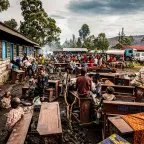
… of IHL. Yet today, violence against health-care personnel, facilities and transports is … In carrying out its Health Care in Danger project, the ICRC has organized expert …
… safe return and providing the necessary care at this critical moment is a great … including doctors, are on-hand to provide care as needed. “More families are waiting … well as support for essential services like health care, water and sanitation, and …
… by violence 57 Migration and displacement 60 Health care 61 The missing 64 People deprived of their … because she feared they were in danger. At a shelter for migrants in Tecun …
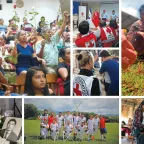
… everything is in short supply: medical care, drinking water, food and even basic … been targeted. Already in 2024, the World Health Organization (WHO) reported that fewer … daily challenge and, in some cases, a mortal danger. Often, residents take their lives in …
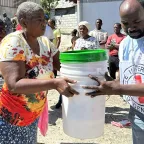
… of the law. In addition, the resolution on health care in danger calls on States to adopt and effectively …
… overcome their challenges through our mental health and psychosocial support (MHPSS) … displaced people (IDPs), where the danger of unexploded ordnances remains acute. A … resilience. Provided direct psychological care to 44 affected people through 301 …
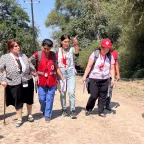
… near populated areas. Rising attacks on health facilities and workers – 54 in the first … injured or sick but can’t seek out medical care because nearby clinics have closed and … all sides to not attack civilians, including health workers. We remain hopeful the day …
… been taken in Karachi under Healthcare in Danger Project including the training of … by organizing 32 trainings in which 456 health professionals including doctors, nurses, … hospitals, medical colleges and other health related organizations to conduct such …
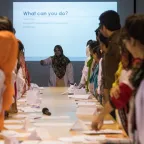
Try one of the following resources:
Created in 1863, the ICRC library, alongside the ICRC archives, provides an indispensable documentary reference on the organization itself and international humanitarian law.
International humanitarian law is based on a number of treaties, in particular the Geneva Conventions of 1949 and their Additional Protocols, and a series of other instruments.
Customary international humanitarian law consists of rules that come from "a general practice accepted as law" and that exist independent of treaty law.